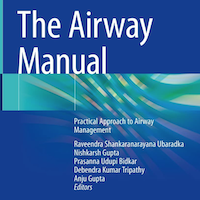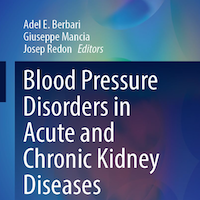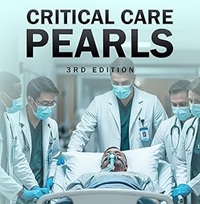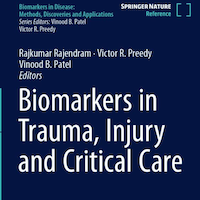Tag: blood pressure
The Pressure to Survive: Why Peak BP Matters for the Oldest ICU Patients
This binational cohort study analyzed 219 patients aged 90 and older who were admitted to the ICU following an in-hospital cardiac arrest. While clinical focus often shifts to average or minimum blood pressure, this research... read more
Increased Sound Levels in the Cardiac ICU Associated with Increased Heart Rate, Blood Pressure, and Sedation
Sound levels in the CICU were consistently higher than recommended. An increase in heart rate, blood pressure and sedation utilization may suggest a stress response to persistent and sudden loud sounds. Given known negative... read more
The Vasopressin Loading for Refractory Septic Shock Study
Vasopressin loading may be safely introduced for septic shock. Vasopressin loading may be used to predict responses to its continuous infusion and select appropriate strategies to increase blood pressure. 92 patients were... read more
Early Control of Elevated Blood Pressure – INTERACT3
Early control of elevated blood pressure is the most promising treatment for acute intracerebral hemorrhage. We aimed to establish whether implementing a goal-directed care bundle incorporating protocols for early intensive... read more
Impact of Mobilization on Vital Signs and Oxygen Saturation in Open-Heart Surgery
Early and frequent mobilization did not cause vital signs and oxygen saturation to deviate from normal limits in open-heart surgery patients. The difference between pulse and systolic blood pressure values measured before... read more
Pooled Analysis of Higher vs Lower Blood Pressure Targets for Vasopressor Therapy Septic and Vasodilatory Shock
Targeting higher blood pressure targets may increase mortality in patients who have been treated with vasopressors for more than 6h. Lower blood pressure targets were not associated with patient‑important adverse events... read more
Meaning of Intracranial Pressure-to-Blood Pressure Fisher-Transformed Pearson Correlation-Derived Optimal Cerebral Perfusion Pressure
These mechanistic simulations provide insight into the empiric basis of optimal cerebral perfusion pressure and the significance of PRx and Δ CPP. PRx and optimal cerebral perfusion pressure deviations do not directly reflect... read more
The Accuracy of Noninvasive Cardiac Output and Pressure Measurements with Finger Cuff
The finger cuff method provides a reasonable estimate of CO and blood pressure, which does not meet the criteria for clinical interchangeability with the currently used invasive devices. Finger cuff is an easy-to-use hemodynamic... read more
How Bacteria May Help Regulate Blood Pressure
While bacteria once had negative connotations, scientists are now saying it could be good for you. Smell receptors in kidneys sniff out signals from gut bacteria for cues to moderate blood pressure. Some years ago, when Jennifer... read more
Systolic Blood Pressure Reduction and Risk of Cardiovascular Disease and Mortality
Clinical trials have documented that lowering blood pressure reduces cardiovascular disease and premature deaths. However, the optimal target for reduction of systolic blood pressure (SBP) is uncertain. This study suggests... read more
Sleep deprivation for 24-hour work shifts can affect heart
Sleep deprivation while working 24-hour shifts affects heart function, a new German study suggests.... read more
Low Diastolic Blood Pressure Linked to Subclinical Myocardial Damage and Coronary Events: ARIC Analysis
Very low diastolic blood pressure (DBP) is associated with an increased risk of subclinical myocardial damage, particularly among individuals with diastolic pressures less than 60 mm Hg, according to the results of a new... read more
Researchers identify potential new way of treating hypertension
Researchers eyeing first new anti-hypertensive drug treatment strategy in more than 15 years. Researchers at the University of Bristol and Afferent Pharmaceuticals have identified a potential new way of treating high blood... read more









